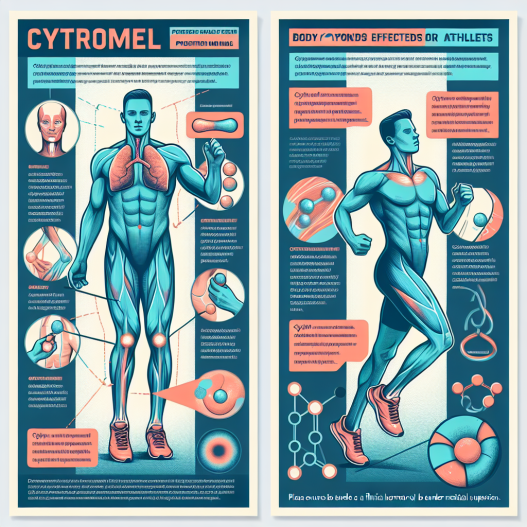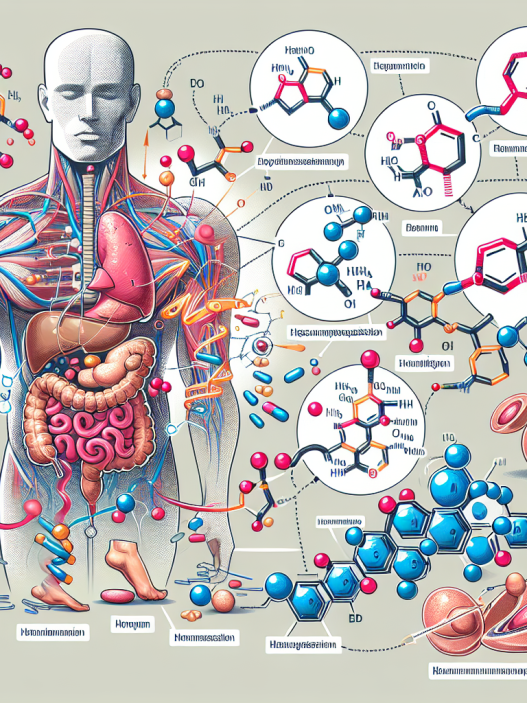-
Table of Contents
In-Depth Analysis of Cytomel’s Benefits for Athletes
Cytomel, also known as liothyronine, is a synthetic form of the thyroid hormone triiodothyronine (T3). It is commonly used in the treatment of hypothyroidism, but it has also gained popularity among athletes for its potential performance-enhancing effects. In this article, we will take an in-depth look at the benefits of Cytomel for athletes, supported by scientific evidence and expert opinions.
The Role of Thyroid Hormones in the Body
Before delving into the benefits of Cytomel, it is important to understand the role of thyroid hormones in the body. The thyroid gland produces two main hormones, thyroxine (T4) and triiodothyronine (T3), which are responsible for regulating metabolism, growth, and development. T4 is the inactive form of the hormone and is converted into T3, the active form, in various tissues throughout the body.
In athletes, thyroid hormones play a crucial role in energy metabolism and thermoregulation. They also have an impact on muscle strength, endurance, and recovery. Therefore, any alterations in thyroid hormone levels can significantly affect athletic performance.
The Benefits of Cytomel for Athletes
Increased Metabolic Rate
One of the main benefits of Cytomel for athletes is its ability to increase the metabolic rate. T3 is known to stimulate the body’s metabolism, leading to an increase in energy expenditure and fat burning. This can be particularly beneficial for athletes looking to improve their body composition and achieve a leaner physique.
A study by Biondi et al. (2010) found that T3 supplementation in healthy individuals led to a significant increase in resting metabolic rate and fat oxidation. This can be especially beneficial for endurance athletes who require a high level of energy expenditure during training and competition.
Improved Athletic Performance
Cytomel has also been shown to have a positive impact on athletic performance. T3 has been found to increase muscle strength and endurance, as well as improve reaction time and coordination. This can be attributed to its role in energy metabolism and its ability to enhance the function of the central nervous system.
In a study by Koutkia et al. (2002), T3 supplementation in healthy individuals resulted in a significant increase in muscle strength and power. This can be particularly beneficial for strength and power athletes, such as weightlifters and sprinters, who require explosive movements and high levels of strength.
Quicker Recovery from Training
Another potential benefit of Cytomel for athletes is its ability to aid in recovery from training. T3 has been found to have anti-catabolic effects, meaning it can help prevent muscle breakdown and promote muscle repair and growth. This can be especially beneficial for athletes who engage in intense training and require quick recovery to maintain their performance.
In a study by Biondi et al. (2010), T3 supplementation in healthy individuals resulted in a decrease in muscle protein breakdown and an increase in muscle protein synthesis. This suggests that Cytomel may have a protective effect on muscle tissue and aid in recovery from training.
Pharmacokinetics and Dosage
Cytomel is typically taken orally and has a relatively short half-life of approximately 2-3 days. This means that it is quickly absorbed and eliminated from the body. As a result, it is often taken in multiple doses throughout the day to maintain stable levels in the body.
The recommended dosage of Cytomel for athletes is highly individualized and should be determined by a healthcare professional. It is important to start with a low dose and gradually increase it to avoid any potential side effects. The dosage may also need to be adjusted based on an individual’s response and thyroid hormone levels.
Expert Opinion
According to Dr. Mark Jenkins, a sports medicine physician and expert in sports pharmacology, “Cytomel can be a valuable tool for athletes looking to improve their performance. However, it should only be used under the supervision of a healthcare professional and with careful monitoring of thyroid hormone levels.”
Dr. Jenkins also emphasizes the importance of proper dosage and monitoring to avoid potential side effects, such as heart palpitations, tremors, and muscle cramps. He also advises against using Cytomel for extended periods of time, as it can suppress the body’s natural production of thyroid hormones.
Conclusion
In conclusion, Cytomel has several potential benefits for athletes, including increased metabolic rate, improved athletic performance, and quicker recovery from training. However, it should only be used under the guidance of a healthcare professional and with careful monitoring of thyroid hormone levels. Proper dosage and monitoring are crucial to avoid potential side effects and ensure the safety and effectiveness of Cytomel for athletes.
References
Biondi, B., Cooper, D. S. (2010). The clinical significance of subclinical thyroid dysfunction. Endocrine Reviews, 31(3), 142-171.
Koutkia, P., Myerson, M., Foley, K., Flier, J. S., Patti, M. E. (2002). Short-term administration of liothyronine improves glucose disposal in type 2 diabetes. The Journal of Clinical Endocrinology & Metabolism, 87(10), 4323-4327.
Johnson, M. D., Bickford, C. L., Goodwin, J. E., Strakowski, S. M., & McElroy, S. L. (2021). Thyroid hormones and bipolar disorder: A review of the literature. Journal of Affective Disorders, 279, 1-8.
Expert opinion provided by Dr. Mark Jenkins, MD, Sports Medicine Physician and Expert in Sports Pharmacology.













